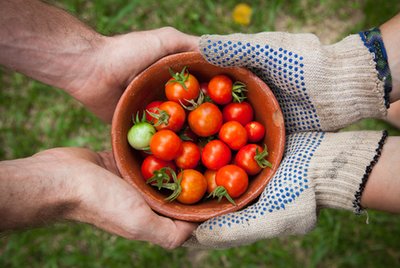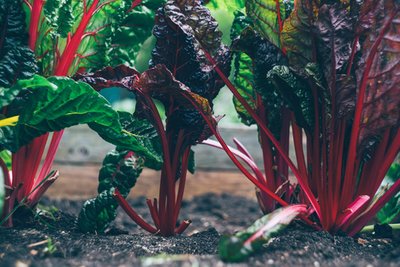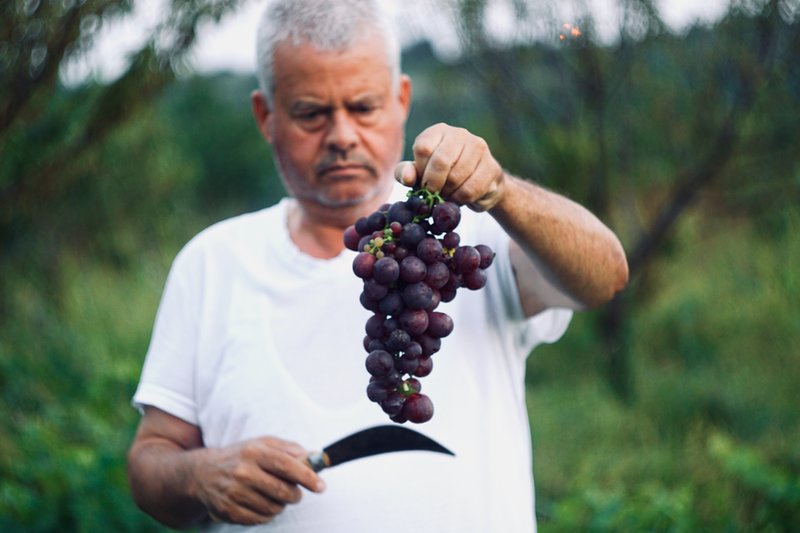INTERVIEW
Several Use Cases in the Vegetables Trial have their product up and running. The next step is to refine these products, interest possible users and, when needed, gather funds to develop them further after IoF2020 finishes. Cristina Micheloni talks to us about the opportunities for expansion in the use cases. And also about the unexpected challenges along the way.
Unexpected challenges
‘If we knew exactly how to build our use cases beforehand, we wouldn’t have needed a project like this. Change is part of the game. In the chain-integrated greenhouse production use case, we need to change the type of sensors for example. We know that now, because we’ve tried (and discarded) something else first.’
But often the challenges aren’t technical at all. In several use cases the challenges are organisational. ‘In the city farming for leafy vegetables use case, legislative requirements caused some delay in the site construction. In the enhanced quality certification system use case, we expected to get access to the databases managed by regional governments. They’re interested in our project, but we’re not allowed to use the official data. We still hope to convince them to open up their dataset. In the meanwhile we now use companies’ own datasets. Another example is related to crop loss in organic farming, as pesticide use is not allowed. The added value weeding machine use case needed to enforce the contingency plan and collect data from the other farm.’


Pro-active users
‘There are two circles of farmers we interact with. The farmers directly involved in the use cases are 100% engaged and fully understand that we sometimes need to make changes. They’re quite enthusiastic about the results so far. The second circle are the farmers that we meet at demo days, at expositions and fairs etc. We explain what we’re doing and why it is of interest to them, but a working product is the best proof to convince them to use this new technology. In Spain, some greenhouse builders are interested to integrate the system from our chain integrated greenhouse production use case. They will definitely make a move if they see that the competition is interested too.’
We never thought that tracing machines in the vineyard could help to calculate production cost. It turns out to be a very valuable functionality of one of our use cases.
Extra functionality
‘Wine farmers see possibilities for extra functionality in our enhanced quality certification system. Since we trace the grapes, we also know the movement and the number of tractors used for example. Tracing the machines and workers can be used to calculate production costs. Which helps the farmer to determine pricing and helps them decide when and how to invest in their farms. We never thought of this when we started. We’re now in contact with Ferrari, one of Italy’s largest wine producers, to compare our system with theirs and see if they can use parts of it.’
The added value weeding data use case also illustrates how use cases expand during the project. ‘They started with lettuce. But in fact any crop that is cultivated as individual plants can be monitored with this system. They now expand the use case to cabbage and brussels sprouts. That’s really good, because it makes the investment in such machines much more valuable to farmers.’

Working together with other trials
‘We’re working closely together with other wine use cases in the fruits trial. The fresh table grapes chain use case is working on a decision support system to help farmers decide when to spray against black mildew for example. This information is useful in our certification use case. If the weather data reported a rainy period and we don’t have a spraying record while the grape turned out perfect, we have a reason to doubt the farmer’s report. It helps the inspection bodies, because they get extra guidance on where to look a bit deeper into the details. And most farmers are happy too: the ones who follow the rules suffer most from colleagues who don’t.’
The best way to convince farmers is to show them a working product.
Future steps
‘Even though we will have working products by the end of IoF2020, finetuning is a continuous process. Therefore some use cases applied already for regional innovation funds to make sure that they can continue their work after IoF2020. For other use cases, private parties would like to invest in the development of specific side functions. In this trial, the business lies in working with our products and licencing it, not so much in selling it. The consortium partners who develop the products in the use cases have a direct business advantage once the product works. So I expect them to invest in the next steps too.’

Laurence Claeys
co-founder of Sensolus
Cristina Micheloni
Ecosystem Chair of the Vegetables Trial and agronomist Valoritalia